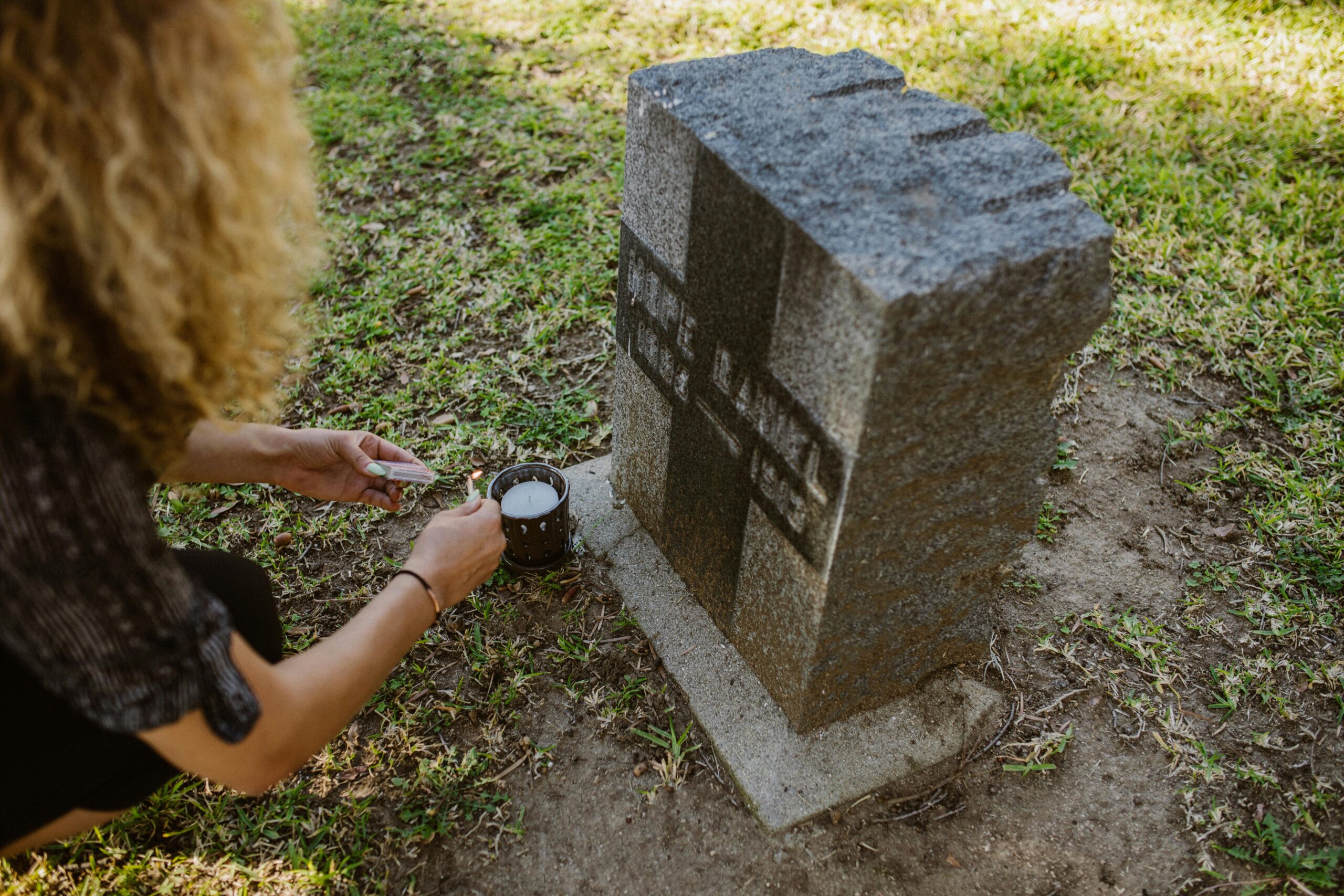“I thought I was learning to live; I was only learning to die.”- Leonardo da Vinci
Recently, our dear friend passed away unexpectedly. His sudden demise came as a shock to everyone, considering he was a vibrant and healthy individual in his mid-50s. This tragic event has left a deep impact, particularly because he leaves behind his wife and two adult children.
Halloween, one of America’s beloved holidays just around the corner, prominently features death and the eerie aspects associated with it. Children’s costumes, stories, and various motifs often revolve around skeletons, ghosts, and other symbols of death. In fact, our neighbor has transformed their front yard into a spooky “graveyard” adorned with different skeletons.
Memento Mori and the Lurking Tower
It’s interesting how we embrace the macabre and focus on death during Halloween, but as a society, we avoid discussing the topic altogether. Many individuals in American society shy away from conversations about death, leading to the labeling of our society as “death denying.” Creating a Will or a Trust often gets postponed or disregarded, with the belief that time will continue indefinitely. We assume that tomorrow or next week will always be there.
The concept of temporal scarcity forms the foundation of the concept of “memento mori,” which translates to “remember you will die” in Latin. This theory suggests that when something is rare or has limited availability, we perceive it as more valuable. The same principle can be applied to our perception of life. When we receive a reminder that our time on Earth is limited, we may take life more seriously and appreciate its value. The realization of our limited time prompts us to approach life with a greater sense of gravity.

“From a proud tower in the town, Death looks gigantically down.”- Edgar Allen Poe
Similar to the tower mentioned by poet Edgar Allen Poe, it often feels as though we reside in a city where Death watches over us from above. In our daily lives, we choose to ignore or deliberately avoid acknowledging Death’s constant presence, as if we are unwilling to raise our heads and recognize the fact that Death is always there, reminding us, “Hey, I’m still here.” We distract ourselves from discussing the subject of death, or we simply evade it altogether.
You are dying each day
We may expect to live a certain number of years and then pass away in our eighties or nineties. However, this was not the reality for most of human history. In ancient Rome, almost half of all children died before reaching the age of 10. Nearly one-third of infants did not survive their first year of life, and this statistic did not improve until the late 19th century. Probably your great grandparents and older ancestors only lived until middle age. A little over a century ago, the average life expectancy for a man was 48 years, while women could expect to live until 54. Nowadays, men can expect to live around 80 years, while women have an average life expectancy of 83 years.
According to the ancient Stoic philosopher Seneca, we are dying each day. Most of our bodily functions reach their peak before the age of 30 and then decline slowly and consistently. We may have the expectation or hope of living into our senior years, but if death comes earlier than expected, it feels like a robbery. It is a common sentiment to express disbelief when someone passes away at a young age, saying, “I can’t believe she died so young.”
The way I envision the transition from our world to the afterlife (if one believes in it) is like a flimsy screen door. This door can be easily opened at any moment, depending on the unpredictable whims of fate. Age doesn’t really matter in this context. I’m confident that if you were to talk to an Emergency Room physician, they would share similar sentiments. They are intimately familiar with the fact that death can come for anyone, regardless of age or outward appearance of health. This awareness often instills in them a profound understanding of life’s vulnerability.
“Keep in mind that you are an actor in a play that is just the way the producer wants it to be. It is short, if that is his wish, or long, if he wants it long.” – Epictetus
Epictetus compares life to a play, in which the producer can unexpectedly remove anyone. In view of this, how can we embrace a more fulfilling existence?
The Five Remembrances
These reflections, also referred to as “messages,” originate from Buddhism. It is unnecessary to follow Buddhism in order to reflect upon them, as they apply to anyone’s beliefs. You can incorporate them into a meditation routine, allowing yourself to focus on your breath (“in and out”) while reading them slowly and contemplating their meaning. The central theme of these messages revolves around the transient nature of everything. Nothing endures indefinitely.
- OLD AGE: I am of the nature to grow old. There is no way to escape growing old.
- SICKNESS: I am of the nature to have ill health. There is no way to escape having ill health.
- DEATH: I am of the nature to die. There is no way to escape death.
- SEPARATION: All that is dear to me and everyone I love are of the nature to change. There is no way to escape being separated from them.
- ACTIONS: My actions are my only true belongings. I cannot escape the consequences of my actions. My actions are the ground upon which I stand.
Memorize these 5 messages. Contemplate these regularly, since they can serve as a GPS for living life. But what else can we do to live more fully?
Align with your values / Take Advantage of Each Day
Consider your relationships, along with the pursuits, and profession that you engage in. Do they reflect your values? Are they detrimental to your well-being? Are you merely going through the motions, just getting by? Or perhaps you feel unsatisfied, sensing that something is missing. If this resonates with you, it may be time for realignment. The solution will reveal itself in moments of quiet reflection, deep within the core of your intuition.
“You may leave this life at any moment: have this possibility in your mind in all that you do or say or think.” Marcus Aurelius
Every morning when you wake up, you can remind yourself that today could be your last day on earth. This realization prompts you to question how you would alter your actions and priorities. This includes forgiveness of others and extricating your possible regret over past actions.
Is the possibility of death more daunting than squandering time on activities we often find ourselves absorbed in, like mindlessly scrolling through social media, watching too much television, or aimlessly surfing the internet? It’s crucial to chase after things that are meaningful to you, do what you believe in, and make a positive impact. As Seneca stated,
“That’s what you should do, Lucilius; claim yourself for yourself, and hoard the time that up to now was pilfered or seized from you or that slid from your grasp… Indeed, if you’re paying close attention, the greatest part of life slips past for those who fail to get things done, a large part for those who do nothing, and all of it for those who do something other than what they ought.”
What Seneca is saying is to reclaim time for yourself. Don’t squander time like many do. It’s too valuable.
Engage in spiritual activities
By cultivating your spirituality, you also help mitigate the grief that may come from a death of a loved one. And in most spiritual practices, it places the emphasis on the spirit and continuation of life. The body may die, but the spirit lives on. Spirituality can also help find meaning in loss.
How do you plug-in to the Divine? What are your spiritual practices?
My son recently asked, “where is God within this problem? Where is God when I suffer?” I responded that a relationship with the Divine is like a marriage. How would my marriage flourish if I was only talking to my wife, spending time with her, once every few weeks? And then, if I spoke to her, I only made requests? “Hi there, but I need for you to plunge the toilet.” The marriage wouldn’t last. Same with the Divine. Take time to be in regular prayer and meditation, in good, bad and mundane times.
Like any relationship, due to our free will as humans, we must tap into the Divine regularly and with that Source, it can help sustain us. One time, during an excruciating stressful day related to a family problem, I was passing a church. I decided I wanted to pray, even at midday. I visited the chapel and spent time in prayer for about 30 minutes. It helped immensely, by sharing what I had on my mind with God. And even without the prayers, the silence helped me connect with that Being who simply is, God. In the silence, I could rest, renew and embrace the calm and peace.
“It is not death that a man should fear, but never beginning to live.” – Marcus Aurelius
Considering mortality, whether it is your own or that of those around you, should not be perceived as morbid. Instead, openly acknowledging it is important, as doing so can help ease fear and uncertainty associated with this natural phenomenon. By confronting the reality of death, we can reduce anxiety and soften the blow if, unfortunately, fate takes a loved one away from us.
Memento mori can enhance our appreciation for the present moment and empower us to live a more purposeful life. As Edgar Allan Poe eloquently portrays in his description of the Tower of Death, we can occasionally cast our gaze towards it and whisper, “I see you and thank you. You are helping me make the most of the gift of today.”




